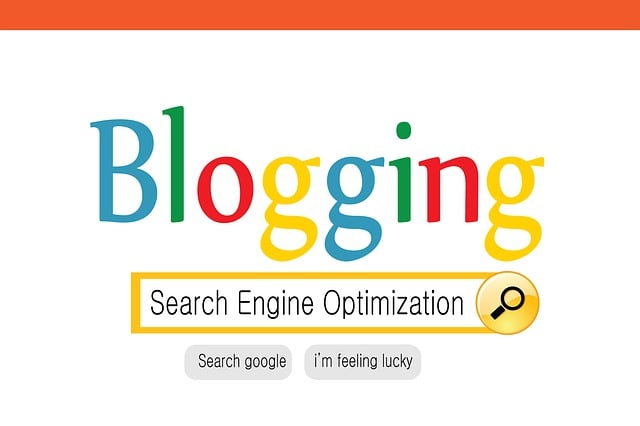In today's competitive e-commerce environment, an advanced ecommerce search engine powered by artificial intelligence (AI) is a strategic advantage. AI improves user experience through natural language processing (NLP), personalized recommendations, and accurate semantic understanding. This integration drives sales growth, enhances conversion rates, and fosters customer loyalty by offering tailored shopping experiences based on behavior and trends. Effective ecommerce search engines powered by AI significantly impact key performance indicators (KPIs) and customer satisfaction, making them essential for success in this dynamic landscape.
In today’s digital landscape, an effective ecommerce search engine is vital for driving sales and enhancing user experiences. As AI continues to revolutionize online retail, its integration into search functionality becomes increasingly crucial. This article explores the evolution from traditional ecommerce search to AI-powered alternatives, delving into key features, implementation strategies, and success measurement. By understanding these aspects, businesses can harness the power of AI to optimize their ecommerce search engine and elevate customer satisfaction.
- Understanding Ecommerce Search Engine: The Need for AI Integration
- Traditional Ecommerce Search vs. AI-Powered Search
- Key Features and Benefits of AI in Ecommerce Search
- Implementation Strategies: Integrating AI into Your Ecommerce Platform
- Measuring Success: Evaluating the Impact of AI Search on Ecommerce Performance
Understanding Ecommerce Search Engine: The Need for AI Integration

In the dynamic landscape of e-commerce, an efficient and effective ecommerce search engine is no longer a luxury but a necessity. It serves as the digital storefront’s cornerstone, enabling customers to navigate through vast product catalogs swiftly and accurately. Traditional search algorithms often fall short in comprehending the nuances of natural language queries, leading to irrelevant or missing results. This is where Artificial Intelligence (AI) steps in as a game-changer.
AI integration in ecommerce search engines brings a revolution by interpreting user intent, understanding context, and learning from user behavior. It employs advanced techniques like Natural Language Processing (NLP) and Machine Learning (ML) to deliver personalized and precise search outcomes. By analyzing vast amounts of data, AI can identify patterns, categorize products intelligently, and even predict customer preferences, thereby enhancing the overall shopping experience.
Traditional Ecommerce Search vs. AI-Powered Search

In the realm of ecommerce, the evolution from traditional search to AI-powered search marks a significant leap forward in enhancing user experiences. Traditional ecommerce search engines primarily rely on keyword matching, often leading to irrelevant results and frustrating shoppers who must sift through countless options. This approach struggles to understand contextual nuances, synonyms, and user intent, resulting in a less-than-optimal shopping journey.
AI-driven search engines, on the other hand, leverage advanced algorithms that analyze user behavior, historical data, and semantic understanding. These intelligent systems can deliver more accurate and personalized results, anticipating customer needs with remarkable precision. By embracing AI, ecommerce platforms not only improve conversion rates but also foster stronger customer loyalty by providing a seamless, intuitive shopping experience tailored to individual preferences.
Key Features and Benefits of AI in Ecommerce Search

The integration of Artificial Intelligence (AI) in ecommerce search engines has brought about a paradigm shift, revolutionizing the way online shoppers interact with products. One of the key features is its ability to understand natural language queries, enabling users to search using conversational language, much like they would with a human assistant. This enhances user experience by reducing the learning curve associated with complex keywords and filters. AI algorithms can also analyze vast amounts of product data, including customer reviews, descriptions, and even visual elements, to deliver highly relevant search results.
Moreover, AI-powered ecommerce search provides personalized recommendations, leveraging past purchase behavior and browsing history to suggest products tailored to individual preferences. This not only increases sales by driving targeted traffic but also improves customer satisfaction by offering a curated shopping experience. Additionally, these systems can dynamically adjust search algorithms based on real-time trends, ensuring that the latest products or those with sudden surges in popularity are easily discoverable, fostering a sense of urgency and timely access to relevant merchandise.
Implementation Strategies: Integrating AI into Your Ecommerce Platform

Implementing Artificial Intelligence (AI) into your ecommerce platform can significantly enhance the shopping experience for customers, making it a powerful strategy in today’s digital landscape. One effective approach is to leverage AI for personalized product recommendations, where algorithms analyze customer behavior and preferences to suggest tailored items. This not only increases sales but also improves customer satisfaction by offering relevant choices.
For an efficient ecommerce search engine, AI can facilitate natural language processing (NLP) to understand customer queries, ensuring accurate results even with ambiguous or misspelled searches. By integrating these technologies, businesses can create a seamless and intuitive shopping journey, setting them apart from competitors and fostering long-term customer loyalty.
Measuring Success: Evaluating the Impact of AI Search on Ecommerce Performance

Measuring success is paramount when implementing AI in any sector, and ecommerce is no exception. The impact of an advanced AI search engine goes beyond just improved user experience; it’s a key driver of sales growth and operational efficiency. By analyzing user behavior patterns and providing personalized product recommendations, AI-powered search can significantly increase conversion rates and average order values. It also reduces the workload on customer service teams by automating basic queries, allowing them to focus on more complex issues.
To gauge the effectiveness of an AI search engine, businesses should look at key performance indicators (KPIs) such as click-through rates, time spent on site, and bounce rates. A rise in these metrics suggests that users are finding relevant products faster, leading to higher engagement and sales. Additionally, monitoring customer satisfaction scores through feedback mechanisms can provide qualitative data on the perceived value of AI-assisted search, further emphasizing its impact on ecommerce performance.
The integration of AI in ecommerce search is no longer a consideration but a necessity. As online retail continues to evolve, understanding customer behavior and providing personalized experiences are key to staying competitive. By leveraging advanced algorithms and natural language processing, AI-powered search engines can transform the way shoppers interact with ecommerce platforms, ultimately driving conversions and enhancing customer satisfaction. Implementing AI in ecommerce search is not just a technical feat but a strategic move that promises to revolutionize the digital shopping landscape.
